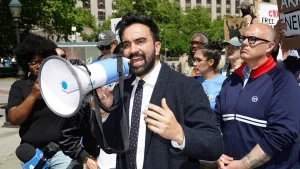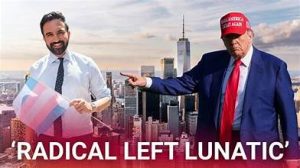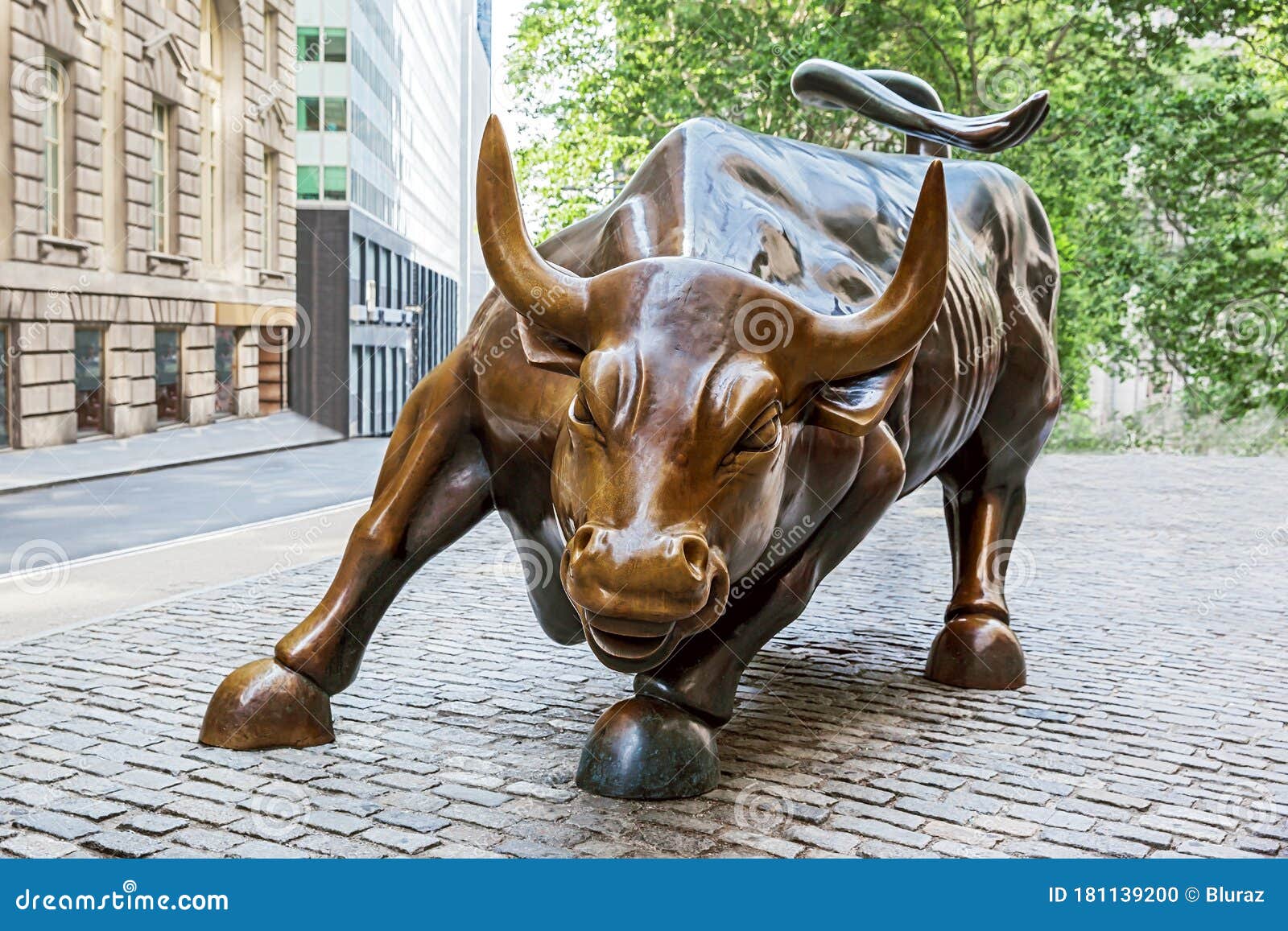London’s Daily Mail newspaper predicts 800,000 people will flee New York if Muslim communist Zohran Mamdani wins today’s mayoral election. The poll, conducted by J.L. Partners for the Daily Mail, may be understating the mass exodus from New York if Mamdani takes over Gracie Mansion.
Already, the New York Stock Exchange plans to reincorporate NYSE Chicago as NYSE Texas in Dallas, expanding its footprint, citing Texas’s pro-business environment and its large base of NYSE-listed firms. Employment data show that Texas is surpassing New York in the overall financial sector workforce, and banks are expanding their Texas hubs (e.g., JPMorgan, Goldman Sachs), reflecting broader competitiveness trends and concerns that the world’s Mecca of capitalism may be under the control of a capitalist-hating Marxist.
While some of these moves have been in the works for a while, financial doyens say a Mamdani win will likely spur other New York companies to bolt the city, along with hundreds of thousands of wealthy New Yorkers whom Mamdani has threatened to penalize with higher income and corporate taxes.

But higher taxes aren’t the only concern of New Yorkers if Mamdani takes control. Anxieties raised by critics fall into four buckets: city finances, business climate, public safety/governance, and social cohesion.
Here are other concerns:
- City finances and services: Opponents warn that proposals such as fare-free buses, city-owned retail, and rent freezes could lead to increased spending and deter investment, potentially risking budget strains if not offset by new revenues or cuts, especially if federal aid is reduced amid conflict with Washington. President Trump has publicly threatened to restrict federal support to New York if Mamdani wins, heightening fears of funding shortfalls for city programs and infrastructure.
- Business climate and jobs: Wall Street and corporate leaders have criticized the Mamdani agenda as anti-business, arguing it could chill private investment, push firms to favor other hubs, and slow job growth in finance and related services. Skeptics frame the platform as “anti‑capitalist,” suggesting higher perceived policy risk for employers considering expansion in NYC.
- Public safety and policing: Activists allied with Mamdani are pressing to dismantle specific NYPD units and reshape policing; critics fear this could weaken counterterrorism and protest‑response capabilities if carried out incautiously. They also worry about politicized pressure on the police commissioner and tensions between City Hall and NYPD leadership.
- Social cohesion and antisemitism concerns: An antisemitism research institute issued a report warning about rhetoric and associations around the Mamdani campaign, arguing they could exacerbate Jewish community anxieties and polarization if translated into policy or appointments. Mamdani supporters dispute that the campaign is religion‑driven, but watchdogs caution about heightened community tensions.
Many financial experts predict that a tangible anti-business agenda and a looming federal-city conflict could arise if a communist New York mayor goes toe-to-toe with the Trump administration.

While President Trump cannot unilaterally “punish” a New York City mayor by turning off most funding, he does have leverage over specific discretionary streams and federal executive actions. According to Trump’s own statement, he would make it “hard … to give a lot of money to New York,” signaling pressure on optional or competitive aid rather than entitlement flows set by Congress.
Key areas of realistic leverage include:
- Withholding or deprioritizing discretionary grants: The administration can steer competitive grants (e.g., DOJ, DHS, DOT discretionary programs) away from NYC or attach tighter conditions, though broad cutoffs face legal challenges and must comply with statutes and the Spending Clause. Trump’s threat is framed as restricting “money” to NYC if Mamdani wins, implying grant discretion rather than statutory funds.
- Conditioning law enforcement and immigration-related aid: The DOJ/DHS can impose cooperation conditions (e.g., information sharing with ICE) on specific grants; noncompliance risks result in reduced awards, subject to court scrutiny and program-specific authority. Mamdani’s platform to end ICE cooperation and expand “sanctuary” protections would likely put such funds at risk if conditions are imposed within lawful bounds.
- Slowing approvals, waivers, or administrative sign‑offs: Federal agencies can delay or deny discretionary approvals affecting transportation, housing, and infrastructure grants or pilot programs if statutory discretion exists, increasing NYC’s financing costs and timelines.
- Heightened federal enforcement posture: The DOJ or DHS could increase audits, compliance reviews, and enforcement actions tied to federal program requirements, which can result in the freezing or clawback of specific funds if violations are found, provided that these actions are grounded in law and evidence.
So, the question I have for New Yorkers is this: Is it worth it to tie your social, economic, and public safety future to a 34-year-old America-hating neophyte who has never held a job, who is a devout Marxist and radical Muslim, who has, and still, condones a “Global intifada” against Jews?
And what about a man who calls Capitalism “unjust and harmful” and who has endorsed the “end goal of seizing the means of production,” a classic Marxist critique that capitalism concentrates ownership and power in private hands rather than the workers?
Mamdani has questioned the concept of private property in housing, arguing that if “the abolition of private property” guaranteed housing, it would be preferable to the current status quo, as current market housing fails to meet basic social needs.

His campaign agenda—city-run grocery stores, fare-free buses, and tax hikes on corporations and the top 1%—is presented as a corrective to capitalist market outcomes that he argues produce inequality and unaffordability.
Mamdani’s supporters insist that redistribution of wealth is moral and necessary, while critics say he “hates capitalism” and seeks a “fundamental shift” away from the system that “built this country.”
New York is America’s largest city. It’s the nation’s financial capital, as well as its social and cultural center.
How would the nation and world react if it suddenly fell under the spell of a communist?
There is little doubt that it would be seen globally as a stark juxtaposition: the symbolic “capital of capitalism” being led by an openly anti-capitalist, socialist mayor, signaling a challenge to what American prosperity, power, and identity mean—right at Wall Street’s doorstep.
Let’s face it, New York’s skyline and stock exchange have long functioned as icons of market dynamism and wealth; skyscrapers themselves are often interpreted as capitalism materialized in steel and glass, both “terrifying and beautiful,” embodying ingenuity and inequality alike. Installing an avowed anti‑capitalist at the helm reframes those icons—from celebrations of private finance to contested terrain over redistribution, public provision, and who the city’s economy is for.

The symbolism would cut both ways. To supporters, it dramatizes that even America’s market citadel wants a different social contract: rent control, expanded public services, and curbs on finance’s primacy. To critics, it epitomizes a significant reversal—Wall Street’s city “surrendering to socialism,” suggesting the erosion of the faith-and-merit narrative that has historically underwritten New York’s capitalist mythos.
The contrast would also highlight a recurring American paradox: socialists operating within, and repurposing, capitalist platforms and imagery—using the very stage of the NYSE bell, Wall Street statuary, and the skyline to argue for post‑market priorities.
In short, a socialist mayor of New York becomes a living critique inscribed onto capitalism’s premier stage: the skyline’s rent‑extracting towers and the Exchange’s opening bell meet a mandate to redirect value, making the city itself the arena where capitalism’s virtues and failures are renegotiated in public view.
If Mamdani wins today, Marx, Lenin, Stalin, and Mao will be celebrating—even if they are all roasting in Hell.
–30–
If you enjoyed this post, please consider subscribing to ForeignCorrespondent and tell your friends to subscribe. “It’s free—what a deal!” If you’ve received this from a friend and would like to be added to our distribution list for future blog posts, simply enter your email in the notifications box to sign up:
https://ronaldyatesbooks.com/category/foreign-correspondent.
You can also find my commentaries on Substack at https://ronyates.substack.com/ and the American Free News Network at https://afnn.us.
Please feel free to comment: We genuinely love hearing from you!

